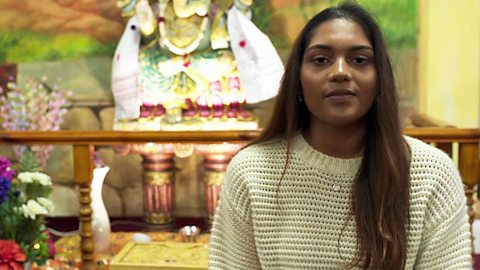Ramadan
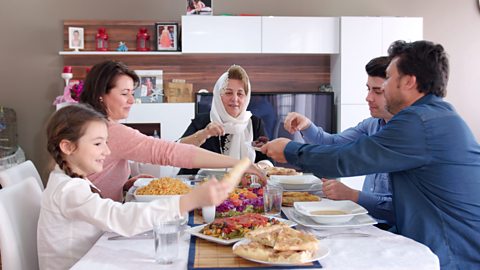
Ramadan is the ninth month of the Muslim calendar. It is during this month that Muslims observe the Fast of Ramadan.
Lasting the entire month, Muslims fast during the daylight hours. From the moment there is sufficient light to tell a black thread from a white one, Muslims have no food or drink until it is dark again.
This means they must get up while it is still dark to have their breakfast.
Once the sun has gone down, they can break their fast. This breaking of the fast is called iftar. They often begin by eating a few dates, followed by a small meal. In the evening they visit with friends and family.
As the Muslim calendar follows the moon, the month of Ramadan falls at a different time each year.
Eid al-Fitr marks the end of the month of Ramadan. During this time friends and families gather to celebrate with prayer, meals and the exchange of gifts.

Why do Muslims fast during Ramadan?
There are several reasons for keeping this fast:
It teaches self-discipline. When Muslims fast they are putting their religion before their own wants and needs.
Going without food reminds Muslims of the hardships of the very poor.
It is a time of worship and contemplation.
It is a time to strengthen family and community ties.
It is very hard to keep the fast in the summer, when the days are long and hot. Muslims will never forget what it is like to go hungry and thirsty.
91»»±¨ Newsround explores seven things you need to know about Ramadan
The origin of Ramadan
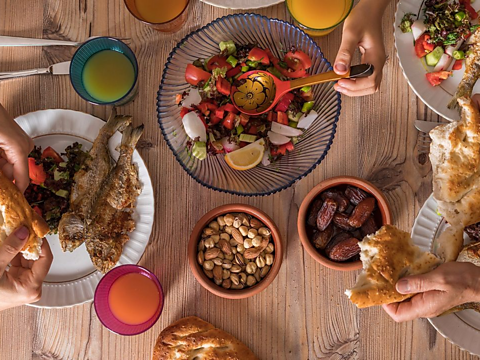
It was during the month of Ramadan that the prophet MuhammadMuhammad was the founder of Islam and the proclaimer of the Qur'an, Islam's sacred scripture. received the words of the Qur'anThe Qur'an is the Islamic holy book..
Ramadan is the anniversary of the giving of the Qur'an.
Muslims were asked to keep the fast by the prophet Muhammad.
Fasting is one of the Five Pillars of IslamThere are five key practices that all Muslims are obligated to fulfil throughout their lifetime. These practices are referred to as pillars because they form the foundation of Muslim life. The five pillars of Islam are Shahada, Salah, Zakat, Sawm, and Hajj..
The other pillars are faith, prayer, charity and making the Pilgrimage to MeccaThe hajj is the pilgrimage to the holy city of Mecca in Saudi Arabia, which every adult Muslim must make at least once in his or her lifetime. The hajj is the fifth of the fundamental Muslim practices and institutions known as the Five Pillars of Islam..

The Five Pillars of Islam
Helping one another
Muslims ensure Ramadan is not a dull and gloomy time by helping one another. They forgive old disagreements.
They spend more time at the mosqueA place of worship and prayer for Muslims., at prayer, and reading the Qur'an.
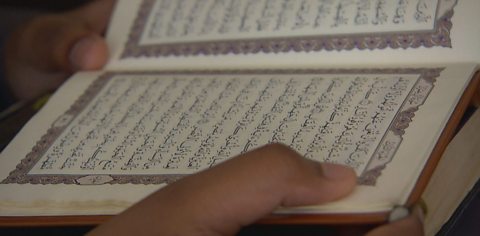
Muslims thank AllahMuslims believe in one God, Allah, who has many characteristics. for giving them the strength to keep the fast that day.
Quiz time!
More on World religions
Find out more by working through a topic
- count2 of 10
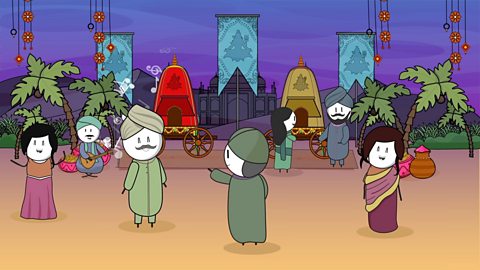
- count3 of 10
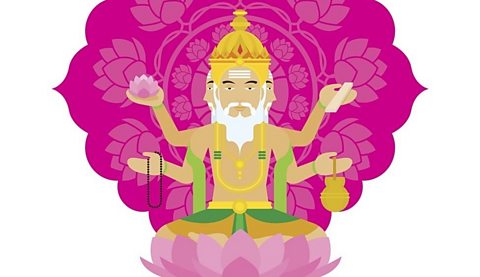
- count4 of 10
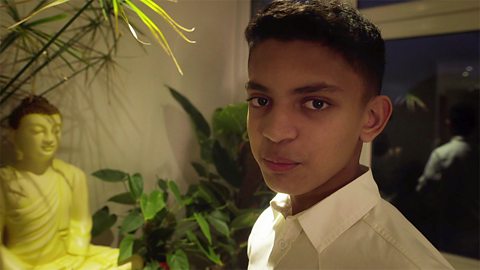
- count5 of 10
